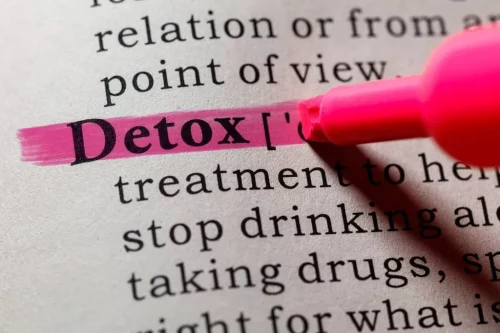
However, they still use alcohol frequently and can’t imagine a “good night out” without it. Binge drinking is characterized by the consumption of around four drinks within two hours for women and five drinks within two hours for men. If this is a normal amount for your loved ones, it’s time for them to seriously reconsider their drinking habits. Enjoying the sensation of rapid https://ecosoberhouse.com/ onset drunkenness and drinking to seek inebriation as quickly as possible is dangerous and may indicate a deeper problem. The more a person drinks, the more their body becomes dependent on ethanol to release these neurotransmitters instead of releasing them naturally. People who struggle to control their consumption have likely existed for as long as alcohol has been around.

Stage 3 – middle stage (quite serious problem drinking)
- They haven’t reached a place where their health declined too far and they can make some extreme changes in their lives.
- It often takes years of abuse before moving from one stage to the other.
- Drinking large amounts of alcohol at one time is dangerous, and can even lead to coma or death.
- As the disease becomes more severe, blackouts and loss of control can happen.
- Often times, alcoholics develop chronic health conditions as a result of their drinking.
- Blacking out from drinking too much is a warning sign of this stage, along with lying about drinking, drinking excessively, and thinking obsessively about drinking.
Alcoholism treatment is possible at any stage of its progression, but understanding how it works is important so you can get help sooner rather than later. The recovery and rehabilitation stage involves treatment, therapy, and aftercare programs. Although you may relapse and start drinking again, these programs can help you transition to sobriety much better. People with alcohol addiction physically crave the substance and are often inconsolable until they start drinking again. You may become more depressed, more anxious, or start losing sleep. You may start to feel sick from heavy drinking, but enjoy its effects too much to care.
- The alcoholic probably isn’t sleeping or eating well at this point and may not be keeping up with personal hygiene.
- In 2021, researchers estimated nearly 30 million people ages 12 years and older in the United States had alcohol use disorder (AUD).
- This stage of alcoholism is difficult to notice, even for the person misusing alcohol.
- Increased drinking begins when the occasional drink with friends becomes a regular activity for yourself.
You deserve excellent care and a rewarding life in recovery.

The second stage on the curve is marked by symptoms such as blackouts. Other warning signs of this stage include lying about drinking, drinking excessively, and 5 stages of alcoholism thinking obsessively about drinking. A treatment center will attempt to verify your health insurance benefits and/or necessary authorizations on your behalf.
Stage Four: Late Alcoholic

This leads to increased alcohol consumption and cravings, as well as a greater risk of binge drinking, and can be considered a moderate case of alcohol abuse. When the individual does not consume alcohol regularly, they may experience withdrawal symptoms and intense cravings. You’ll want to find a rehab center that has medically-supervised detox capabilities so that you can comfortably and safely detox from alcohol. There are inpatient and outpatient options, but an addiction specialist should determine the best level of care for you based on your individual needs. Effective addiction treatment providers will have addiction counselors, but they should also have mental health services as many people with alcoholism have co-occurring mental health conditions. The fifth and most troublesome stage of alcoholism occurs once a person is mentally and physically addicted.
Please note, this is only a quote of benefits and/or authorization. We cannot guarantee payment or verification eligibility as conveyed by your health insurance provider will be accurate and complete. Payment of benefits are subject to all terms, conditions, limitations, and exclusions of the member’s contract at time of service. Addiction Resource does not offer medical diagnosis, treatment, or advice.
As these changes persist even after zero alcohol intake, the risk of relapse is present. Granite Recovery Centers offers a combination of a 12-step curriculum and evidence-based psychotherapies. The treatment available to you offers a comprehensive continuum of care, which includes residential treatment, medical detox, sober living, and intensive outpatient therapy. Patients can undergo four different types of psychotherapy, which include dialectical behavioral therapy, cognitive-behavioral therapy, trauma therapy, and grief and loss therapy.
Because alcoholism is a chronic disease and alcohol relapse is common, persistence is a necessity — but success is achievable. Some chronic alcoholics develop a condition called Wernicke-Korsakoff syndrome, which results from a thiamine (vitamin B-1) deficiency. The condition, which is sometimes called wet brain, is characterized by eye movement disorders, loss of muscle coordination, confusion and memory issues.
Online Therapy Can Help
But some people who drink face a risk of developing this chronic and progressive disease, which affects roughly 1 in every 8 Americans and contributes to about 88,000 deaths annually. Thankfully, there are many effective treatments for alcohol addiction. This means that anyone who feels like they’re on the path to addiction in one of these four stages can create a whole new fifth stage – recovery. Outlining the four phases of alcohol addiction, including the key signs and potential effects of each stage. Whether you care for youth or adults, you are likely to encounter patients with alcohol use disorder (AUD) regularly in your practice. Individuals in this stage may not be drinking every day or even every week.
